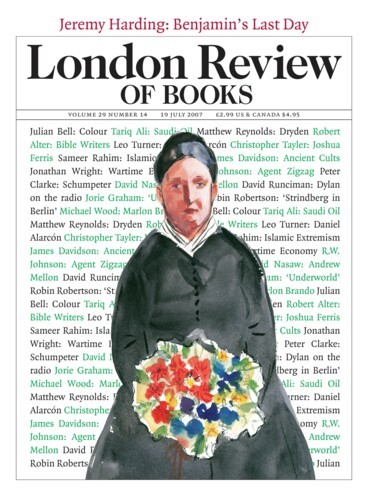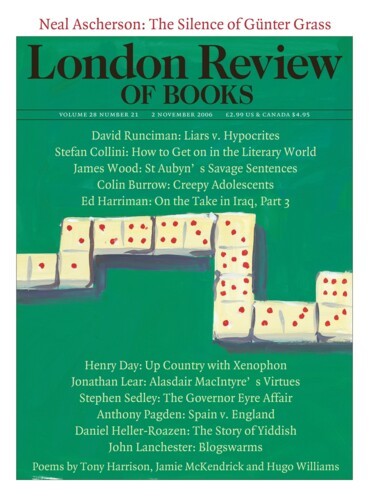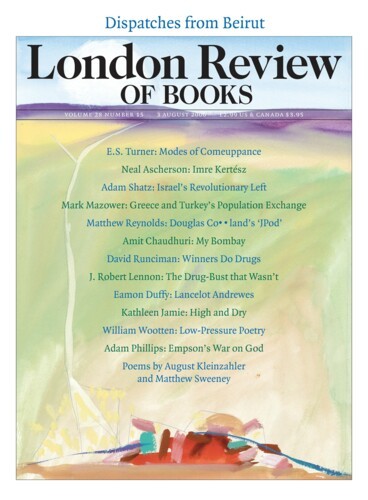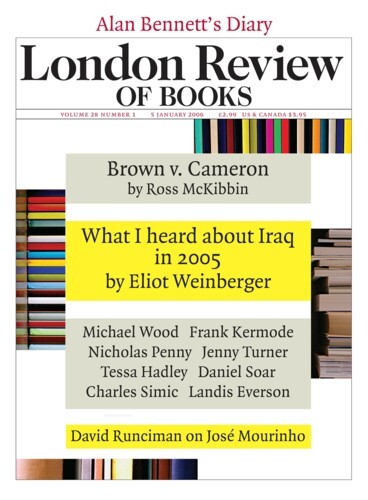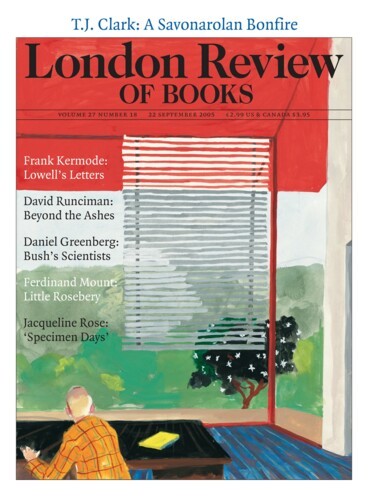Diary: Dylan on the radio
David Runciman, 19 July 2007
Before he discovered literature in a friend’s apartment in New York, Bob Dylan’s connection to the world beyond the narrow one into which he was born came almost exclusively from the radio. The radio is usually on somewhere in the background of his memoirs, and it’s always broadening his horizons, letting him know what American music could sound like, in all its unexpected...
